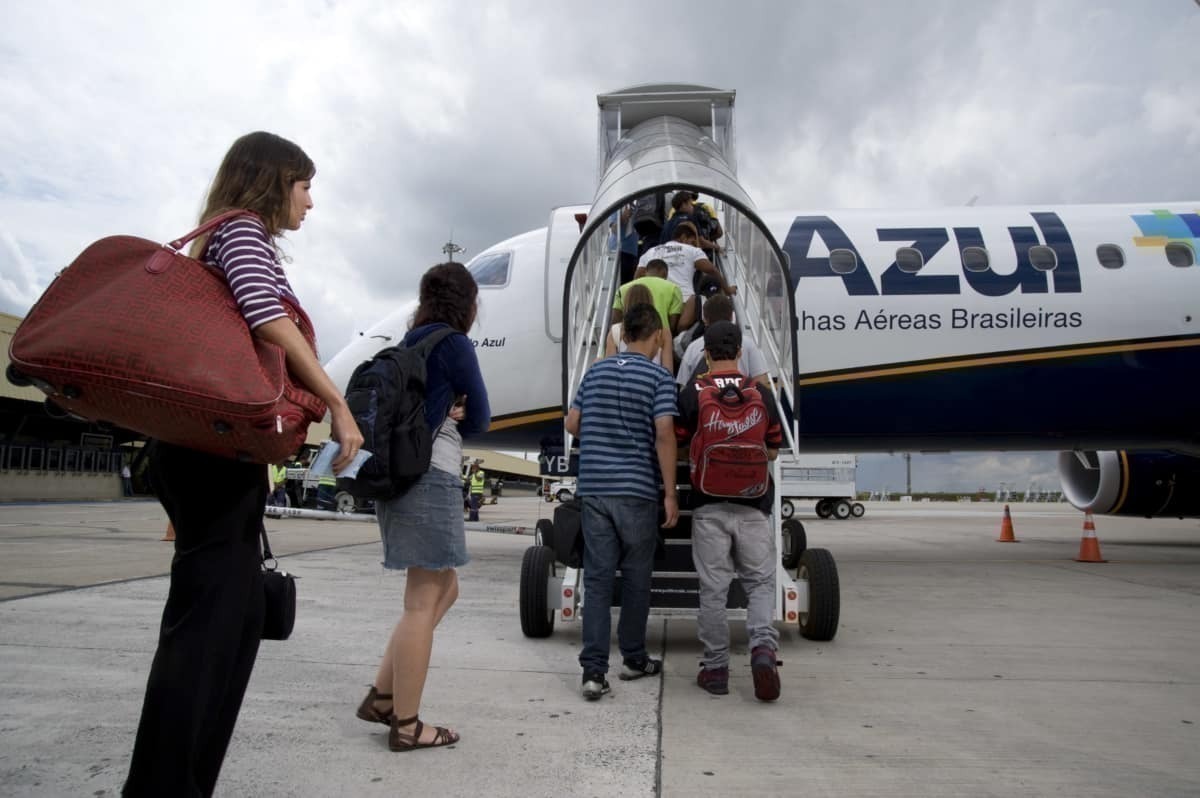The Brazilian carrier Azul Linhas Aereas announced today its intention to operate up to 220 electric vertical take-off and landing (eVTOL) aircraft in Brazil. Azul and Lilium (a company working in regional electric air mobility) will work together to achieve this. Let’s investigate further.

The terms of the agreement
Azul intends to enter into a US$1 billion commercial deal and strategic alliance with Lilium. As part of the commercial arrangement, Lilium will provide 220 eVTOL aircraft for Azul. The Brazilian carrier will start operating them in 2025.
The objective is to “radically transform high-speed regional transportation in a country which sees close to 100 million domestic air passengers a year.” Additionally, Brazil is currently one of the world’s leading civilian helicopter and business aviation markets.
We expect Azul to give more details regarding this new development on August 12, during its second-quarter investors call. Currently, the strategic alliance and aircraft orders remain subject to the parties finalizing commercial terms and documentation.

How would the alliance work?
Lilium plans to operate in multiple regions worldwide by 2025. The German company plans to offer people the opportunity to travel faster than existing high-speed alternatives, and with zero operating emissions.
In Brazil, Azul hopes to operate and maintain the Lilium fleet. Meanwhile, Lilium will provide an aircraft health monitoring platform, replacement batteries, and other custom spare parts. The Brazilian airline would also help with the necessary regulatory approval processes in Brazil for certification.
In all, Lilium’s launch plans in Brazil would increase revenue, alongside the company’s projects in Europe and the US.
John Rodgerson, Azul’s CEO, said,
“Azul is the largest domestic airline in Brazil in terms of cities served and daily departures. Our brand presence, our unique route network, and our powerful loyalty program give us the tools to create the markets and demand for the Lilium Jet network in Brazil. As we did in the Brazilian domestic market over the last 13 years, we look forward to again, now with the Lilium Jet, working to create a whole new market in the years to come.”
Azul currently has a fleet of 151 aircraft, according to ch-aviation. Moreover, it is set to receive 73 additional planes in the next few years, including 19 Airbus A320neo family and 54 Embraer E190 E2.
The airline doesn’t back out of the challenge of creating a new market. Last year, it launched Azul Connecta, a small regional carrier with Cessna Caravan aircraft; the main purpose of this small airline is to connect unserved destinations across Brazil.

Embraer is also developing the eVTOL market in Brazil
The Brazilian market is up for grabs, and it will be exciting to follow up on it in the next few years. Additionally, Embraer is also very interested in developing urban air mobility in Brazil. We spoke about the subject in Simple Flying en Español.
Last month, Eve, an Embraer company, and Flapper (an independent on-demand private aviation platform) announced a partnership. Both companies will develop the Urban Air Mobility (UAM) through Eve’s eVTOL aircraft, known as EVA.
Flapper could acquire up to 25 of Eve’s eVTOL. Meanwhile, Eve would provide Flapper with up to 25,000 hours of flight time in key South American Cities like Sao Paulo, Santiago, Bogota, and Mexico City.
The plan is to “foster a culture of on-demand UAM booking using helicopters to serve as data collection for the future development of EVA.”
Finally, the eVTOL and UAM markets will grow extensively in Latin America. Six out of the ten largest urban helicopter fleets are in Latin America. The region has one of the densest helicopter infrastructures in the world. There’s a business opportunity ready to boom.
What do you think of Azul and Lilium’s alliance? Let us know in the comments below.
from Simple Flying https://ift.tt/3yoOLpR
via IFTTT
Comments
Post a Comment